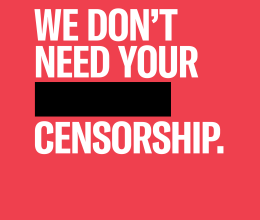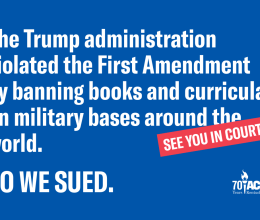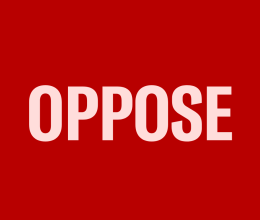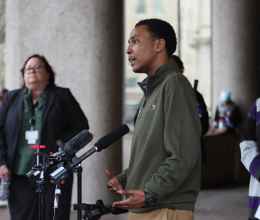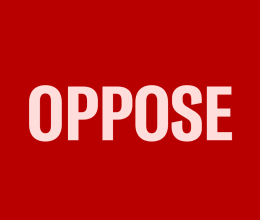
Prison officials violated Carlos Thurman's religious liberties when they forcibly cut his hair. We're suing in federal court.
The ACLU of Kentucky filed a federal lawsuit on Friday, April 29, challenging unconstitutional violations of religious freedom and constitutional rights in Kentucky prisons. The suit was filed on behalf of Carlos Thurman, a Kentuckian incarcerated at Eastern Kentucky Correctional Complex in West Liberty, Kentucky.
Mr. Thurman is a practicing Rastafarian and wears his hair in dreadlocks, consistent with his religious beliefs. In 2021, the prison announced a new policy related to dreadlocks and other natural hair styles, indicating such hairstyles would be forcibly removed (i.e. cut) if they were not searchable.
Mr. Thurman, on behalf of himself and other incarcerated individuals, filed a grievance against the policy, arguing it was unconstitutional. Northpoint Training Center, where Mr. Thurman was housed at the time, then transferred him to another facility in retaliation. In the process of the transfer, prison officials forcibly cut his dreadlocks without any attempt to search them. They then placed Mr. Thurman's cut dreadlocks in a bag sent with him and did not search the cut dreadlocks, showing their intent was never to search Mr. Thurman's hair but to harm him.
“Prison policies may not infringe on sincerely-held religious beliefs unless it can be shown that it’s the least restrictive means possible,” said Corey Shapiro, legal director for the ACLU of Kentucky. “Mr. Thurman should never have been subjected to such retaliatory and degrading actions.”
Prison officials did not attempt to search Mr. Thurman’s hair before cutting it, proving they did not even attempt less restrictive means before violating his sincerely held religious beliefs. These actions violate the federal Religious Land Use and Institutionalized Persons Act and Kentucky's Religious Freedom Restoration Act. The prison also violated Mr. Thurman’s First Amendment rights by retaliating against him for exercising his constitutionally-protected right to file a grievance.
The lawsuit was filed in the United States District Court for the Eastern District of Kentucky.
View the complaint in the PDF below. Follow the lawsuit's progress here.

